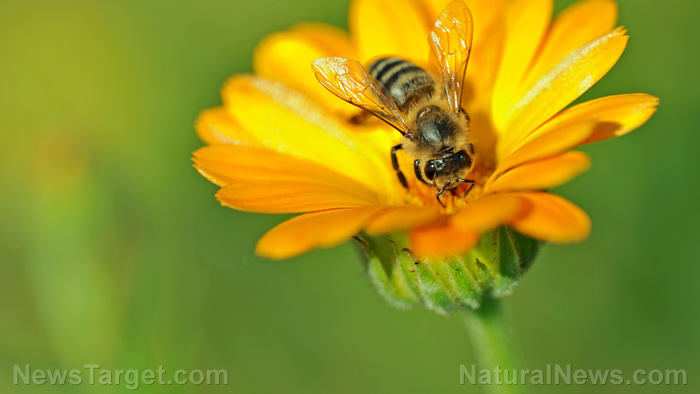Biologists: Pesticide regulations designed to protect bees are failing
02/25/2019 / By Tracey Watson

Bees, like many of the world’s insects, are in crisis, and their numbers are dwindling at an alarming rate. At the same time, the world’s population – and its reliance on insect-pollinated crops – continues to grow at an equally alarming pace. The bees might be in crisis right now, but pretty soon it will be humans who are in really serious trouble.
While the world’s governments have started to wake up to the dangers pesticides pose to honeybees, a series of studies by the University of Guelph, published in the journal Environmental Entomology recently, warns that these measures are not enough. They also warn that other species of bees, including bumblebees and solitary bees, are at least as important as the honeybee when it comes to the pollination of food, and yet these species have, for the most part, been virtually ignored in terms of pesticide risk assessment measures. (Related: As global insect population plunges toward total ecological collapse, the corporate-run media still censors the truth about GMOs and pesticides.)
Protecting wild pollinators “more important now than ever before”
The studies were based on a group of workshops held in Canada in 2017, which were attended by 40 bee researchers from a variety of educational institutes, as well as representatives of regulatory agencies and agrochemical companies.
Science Daily reported that the research confirmed that habitat loss, pathogens and widespread pesticide use continue to have a dire impact on insect populations worldwide. And this is true, not just of honeybees, but of all bees as well as many other types of insects.

“There is evidence that our dependency on insect-pollinated crops is increasing and will continue to do so as the global population rises,” study co-author Professor Nigel Raine told Science Daily. “With growing demands for crop pollination outstripping increases in honeybee stocks, protecting wild pollinators is more important now than ever before. Honeybees alone simply cannot deliver the crop pollination services we need.”
While governments have focused their efforts on protecting honeybees, Raine warns that wild bees are even more important to food pollination than farmed bees. Very few studies have focused exclusively on the effects of pesticides on adult and larval wild bees when they are exposed to these chemicals through their food sources or the soil they live in.
The scientists involved in the latest research are particularly concerned about the effects of pesticides on bumblebees. Bumblebee queens, for example, have a different life cycle to honeybee queens, and this makes them experience more contact with pesticides in the course of their lifespans.
“That’s a critical difference because the loss of a single bumblebee queen translates into the loss of the colony that she would have produced. It’s one queen, but it’s a whole colony at risk,” noted Angela Gradish, one of the study’s lead authors.
Both honeybees and bumblebees forage on many different types of flowering plants. The bumblebee is at greater risk of pesticide exposure, however, because it is larger and carries more pollen around between plants. It also forages when there is less light and when weather is cooler, which is not typical of honeybees.
The massive bee and insect crisis gets far less coverage in the mainstream media than the unsubstantiated theory of global warming. In the meantime, while the problem is largely ignored, pollinators continue to die off at an alarming rate. Governments around the globe need to step in quickly and take decisive steps to halt the use of pesticides in conventional farming. If they do not, the future of our own species will begin to look as bleak as that of the world’s insects.
Learn more at Pesticides.news.
Sources include:
Submit a correction >>
Tagged Under:
This article may contain statements that reflect the opinion of the author





















